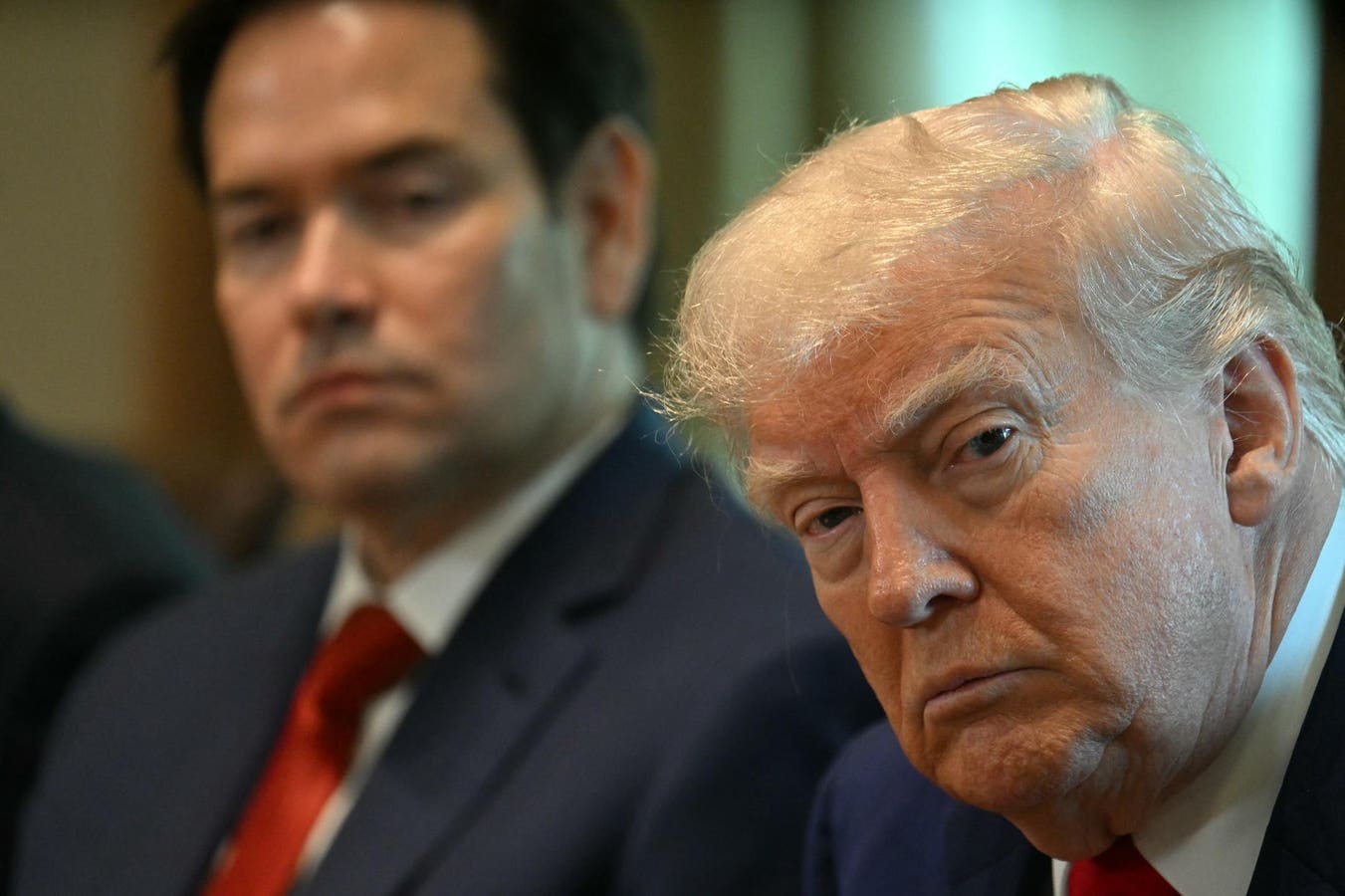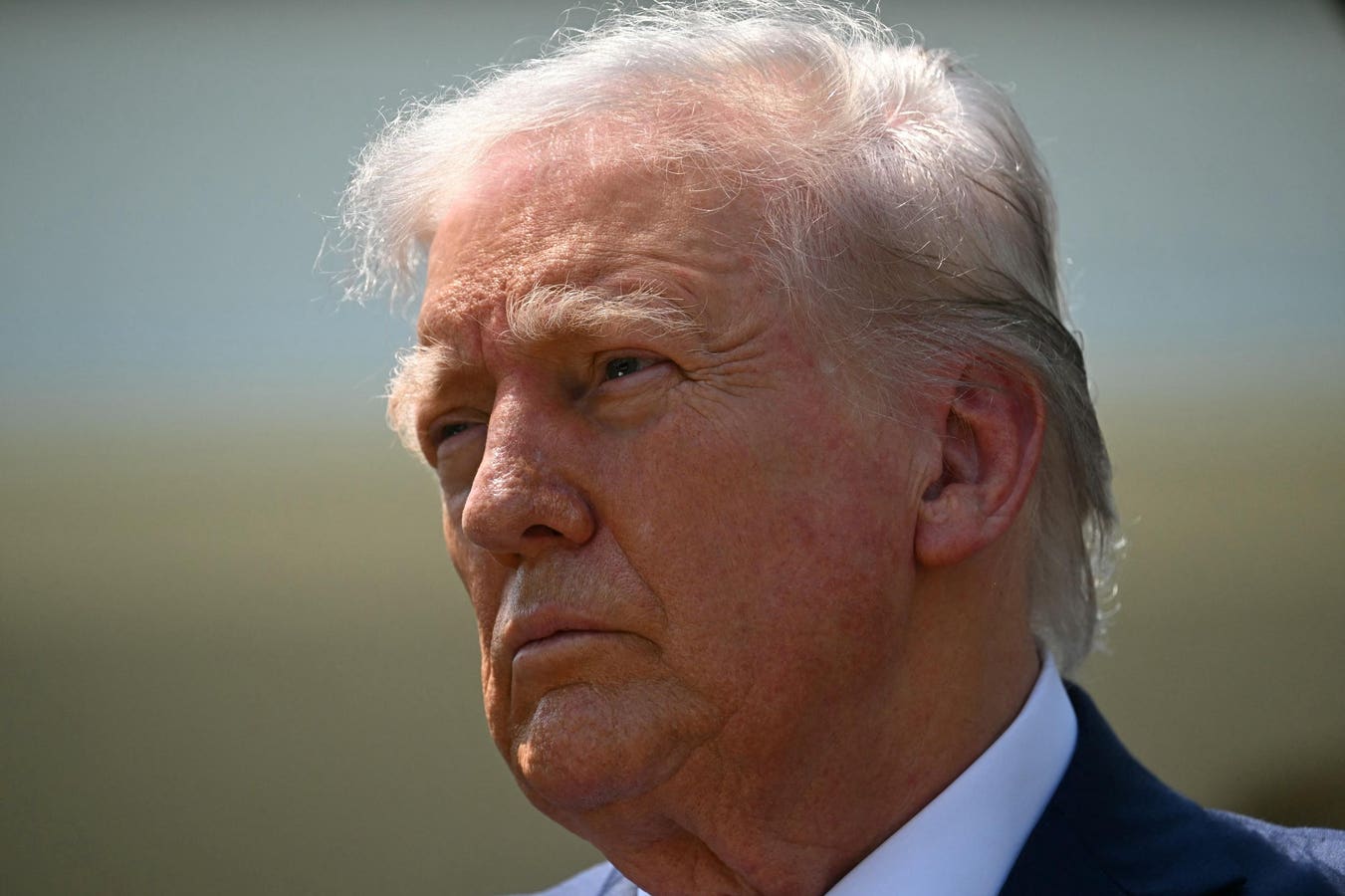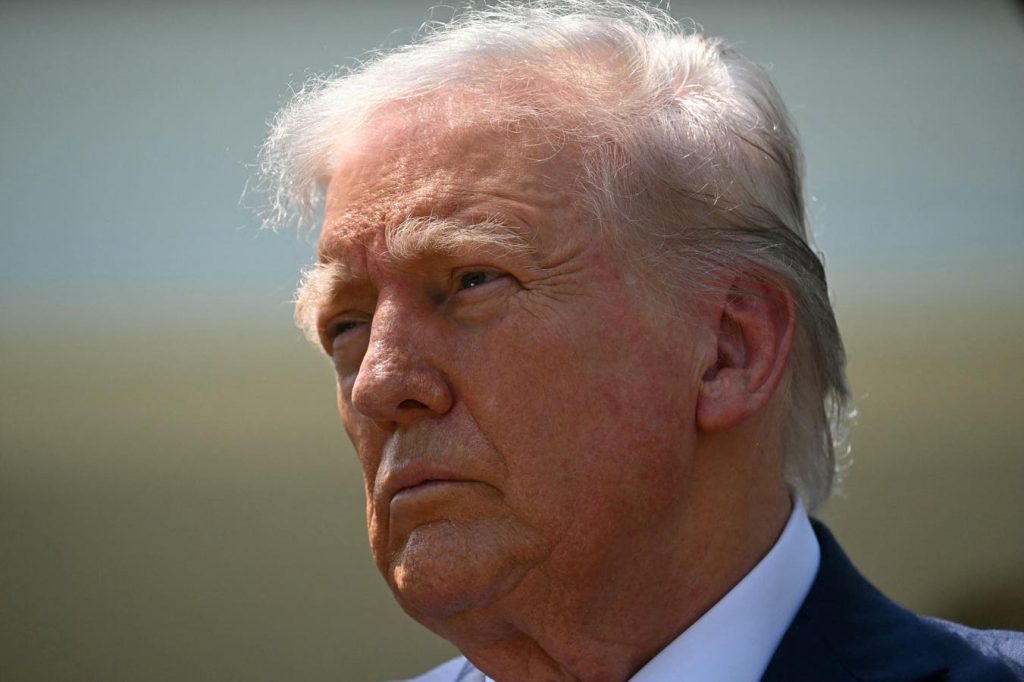Topline
A federal judge Thursday blocked the Trump administration from deporting Venezuelans using an 18th century law that has been used just three other times in U.S. history, issuing the first permanent injunction against the administration’s use of the law and creating further uncertainty over how the government will respond.
The ruling was issued Thursday. (Photo by JIM WATSON/AFP via Getty Images)
Key Facts
District Court Judge Fernando Rodriguez Jr. said in a filing the Alien Enemies Act of 1798 cannot be used against people the Trump administration alleges are gang members.
Rodriguez’s ruling, which argues the Trump administration is not using the law properly, is the first permanent injunction barring the deportations of Venezuelans from South Texas.
The ruling differs from Washington, D.C., District Court Judge James Boasberg’s temporary ruling against the deportations last month that was later overturned by the Supreme Court, which said Boasberg did not have authority to rule on the matter because the deportations took place in Texas, where Rodriguez is based.
It is unclear if the Trump administration, which has sparred with multiple courts in defending the deportations, will follow Thursday’s ruling or ignore it.
The government could take the case to an appeals court or ultimately the Supreme Court, which partially ruled in Trump’s favor when it shot down Boasberg’s temporary injunction against the deportations.
The White House did not immediately respond to Forbes’ request for comment.
Get Forbes Breaking News Text Alerts: We’re launching text message alerts so you’ll always know the biggest stories shaping the day’s headlines. Text “Alerts” to (201) 335-0739 or sign up here.
What Did The Judge Say About Trump’s Use Of The Alien Enemies Act?
Rodriguez targeted the Trump administration’s use and interpretation of the Alien Enemies Act, which can only be invoked when there is a declared war or an “invasion of predatory incursion” carried out or threatened against the U.S. by a foreign nation. Rodriguez said in his ruling President Donald Trump’s proclamation invoking the Alien Enemies Act “makes no reference to and in no manner suggests that a threat exists of an organized, armed group of individuals entering the United States at the direction of Venezuela to conquer the country or assume control over a portion of the nation.”
What To Watch For
The case could be end up before the Supreme Court, which temporarily paused further deportations of Venezuelans under the Alien Enemies Act a little over a week ago. But in March, the Supreme Court ruled against Boasberg’s order temporarily barring the deportations of Venezuelans, while noting deportees under the Alien Enemies Act must receive notice of their removal “within a reasonable time” so detainees can challenge their deportation if they wish.
Tangent
The back and forth between the Trump administration and the courts over the deportations has stoked fears of a constitutional crisis, with critics pointing out the government’s non-compliance with court orders and comments from top officials like Vice President JD Vance and adviser Stephen Miller, who have blasted judges for ruling against the Trump administration’s deportations.
Key Background
The Trump administration carried out the deportations of about 250 Venezuelans to El Salvador last month, claiming all of the deportees were gang members belonging to criminal organization Tren De Aragua. A “60 Minutes” investigation did not find criminal records for 75% of the Venezuelans deported to El Salvador’s Terrorism Confinement Center, while the Department of Homeland Security said many of the people without criminal records “are actually terrorists, human rights abusers, gangsters, and more.” Boasberg issued an order last month barring the deportations of the Venezuelans, but the Trump administration believed his order was null, claiming the deportation flights were already over international waters when the order was issued. Flight logs later showed two flights left the U.S. before Boasberg’s order was issued and landed in Honduras and El Salvador after Boasberg ruled against the deportations. The legality of the deportation flights has been contested in court for well over a month, but court orders against the deportations have not stopped the Trump administration from carrying them out. The White House recently argued it did not violate an order barring the Department of Homeland Security or affiliates from removing migrants, claiming the deportations were carried out by the Department of Defense, which is not a defendant.
Further Reading
Trump’s New Defense For Violating Immigration Orders: A Different Agency Did It (Forbes)











